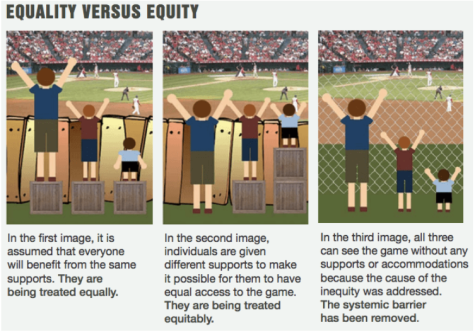FAQs on SDAB
October 21, 2022
Many people have questions about diversity, so I wanted to create this column to elucidate these matters, dispel myths, and create more understanding. Educating yourself plays a great role in creating an inclusive environment. Below are some common questions relating to diversity, and their answers.
1. What even is diversity?
Simply explained, diversity is composed of “all the similarities and differences amongst people.” They are the aspects that make us who we are such as age, ethnicity, national origin, sexual orientation, religious beliefs, disability, socio-economic background, perspectives, and values. An important aspect of diversity is the commitment to recognizing, appreciating, and celebrating our uniqueness.
2. Why is diversity so important?
Diversity is important because we live in a global society with people with different backgrounds, experiences, and identities. Understanding not only ourselves but also others is key to success and inclusion for all. Diversity in environments such as school enables learning with people with different perspectives, encouraging collaboration and innovation. Our different voices and perspectives are what make us so strong.
3. What is the difference between Equality and Equity?
Equality means sameness in which each person is given the same opportunities, whereas; equity recognizes that people start off from different points and provides the opportunities and resources necessary to reach an equal outcome. Equity works to assure that one group is not given an advantage over the other.
4. How do I differentiate between cultural appropriation and cultural appreciation?
Cultural Appreciation is appreciating another culture in an effort to connect with others and broaden their perspectives. On the other hand, cultural appropriation is taking an aspect of a culture that is not their own without consent, permission, or cultural context to the item/practice in order to mimic it. Culturally distinct items, aesthetics, or spiritual practices are all things that can be appropriated for solely personal interest.
I hope that you learned something from these FAQs and continue to further learn about these topics and expand your knowledge on diversity.




